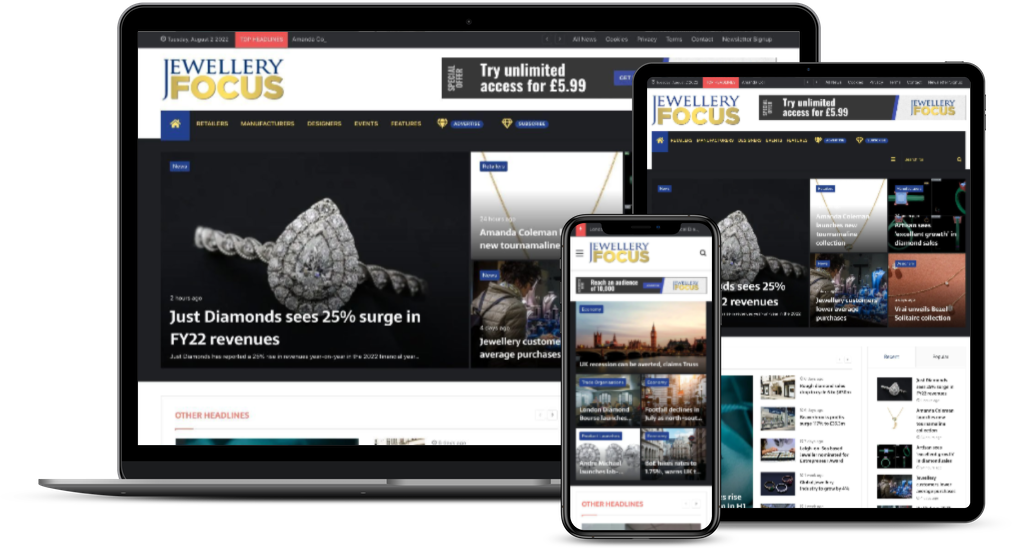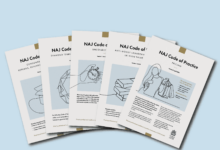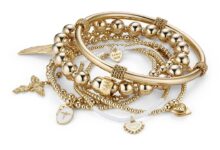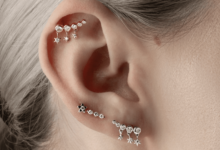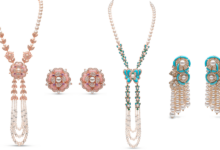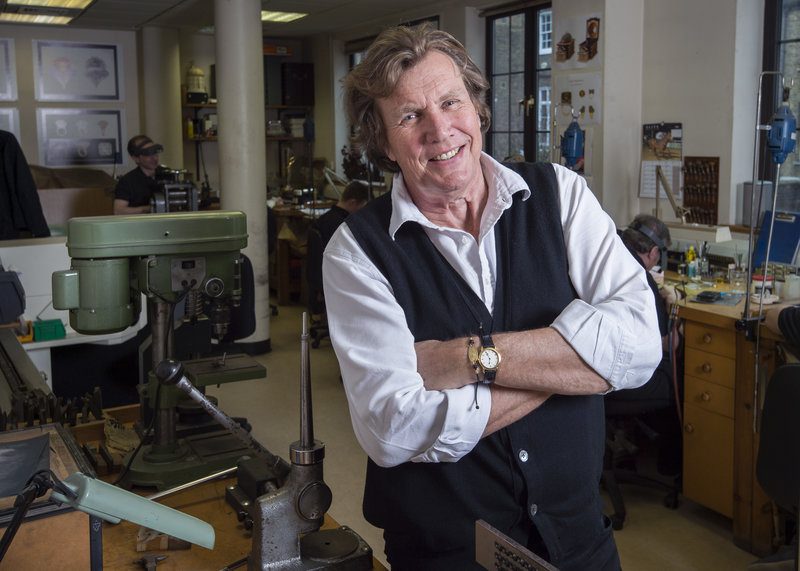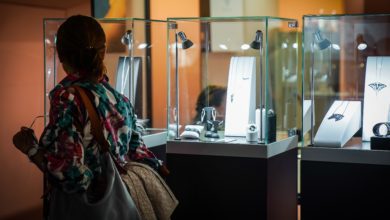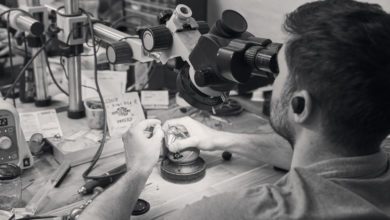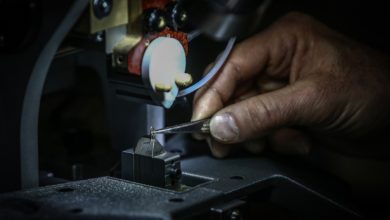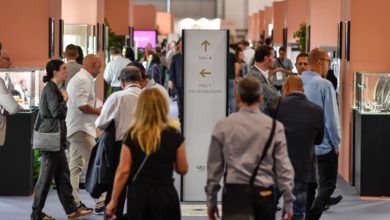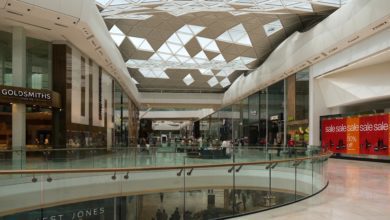Coronavirus: The jewellery industry’s story
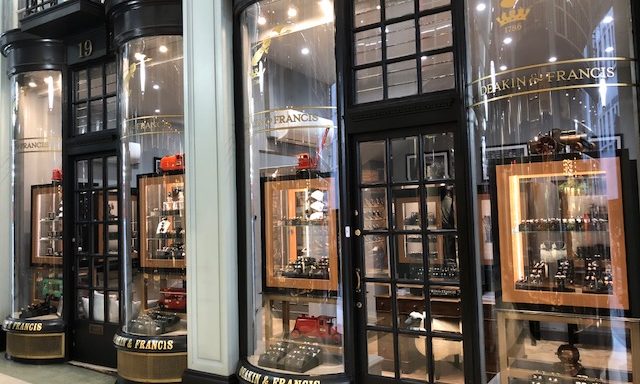
At the time of writing, the UK’s embattled high street has been given a glimmer of hope, after prime minister Boris Johnson announced plans on 25 May to allow non-essential retailers to open by mid-June. The announcement will be welcome news for many jewellers who have struggled over the past few months, but despite the easing of these lockdown measures the road to a full recovery is likely to be a long one. As such, we spoke with a variety of jewellery businesses across the country to see how they have managed so far, and hear about their survival strategies.
WEATHERING THE STORM
As one of the veterans of the jewellery industry, with nearly 234 years in business, Deakin and Francis will have been no stranger to tough times over the centuries. However, the current pandemic has presented an industry which thrives largely on footfall and a personal customer experience with a unique set of challenges. Managing director, Henry Deakin, offers his insight and advice.
How is the business coping with the current pandemic situation?
Deakin and Francis decided to temporarily close the London flagship store in line with government guidelines to keep customers and our colleagues safe. The factory is on a skeleton team who are mostly working from home and going into the office on a rota basis keeping two meters apart and wearing both protective gloves and masks following government guidelines. This seems to be working very well. The website is still up and running shipping both trade and retail orders daily.
Have you felt supported by various measures announced by the government?
I think the government is in an impossible situation. Without the government support to date I am sure we would have lost many companies already. My fear for the industry is when the funding ends how many businesses will be able to continue. We are dealing day to day with this current situation and hope that with government support and the support of our customers that we can continue to do what we love.
How have you been able to overcome some of the challenges the pandemic has thrown your way?
Many aspects of the company have been business as usual. There are always going to be things to have to overcome. Since 1786, when we first started there have been many other different challenges that we needed to overcome. We hope that with our history and background we can overcome all challenges this pandemic throws our way. We thankfully switched to cloud working earlier in the year. By doing this it has made it very easy for our skeleton team to work from home.
Any notable success stories or accomplishments you would like to share?
We were commissioned to manufacture cufflinks and lapel pins for a team at one of the Nightingale hospitals. We were very happy with the opportunity at being able to do this for those who are working so hard to help us all get through this. We have noticed an upturn in customisation requirements and a boost in gifts for loved ones due to the current isolation.
What advice would you like to offer the industry and jewellers of all shapes and sizes?
It is worth remembering that every company in the world is in the same position. Technology will be a huge help to getting each business up and running again. Going forward I think there will be increased demand for both individual items and items made in the UK to a high level of quality. We need to work together and support each other through the tough times ahead.
What is your outlook for the remainder of the year?
We should be under no illusion that once lockdown is lifted it will be business as usual. Deakin and Francis will not be attending any trade fairs this year, we will however continue with our trade online ordering system, NuOrder, that has been in place for several years. We will look to further streamline the cloud system at Deakin and Francis in the event of a second lockdown later in the year. We will also look to work closer with the trade accounts that have supported Deakin and Francis over the years. We will be taking everything step by step and remain positive that we will continue doing what we love.
De Beers Group
A global name in both diamond mining and luxury jewellery, De Beers Group has offered to share its thoughts on how the company and its global operations have coped during the pandemic. David Johnson, head of strategic communication, explains further.
How has the business managed against the pandemic over the past few months?
This is a challenging time for all businesses, right around the world. Across the entire diamond pipeline there has been a significant impact, from exploration through to mining, rough diamond sales, manufacturing and retail. De Beers Group’s priority from the outset has been the health, safety and wellbeing of our employees and our host communities across the world.
We’ve introduced stringent health and hygiene measures across our business and have responded appropriately to lockdowns in the countries where we operate. We’re also implementing a substantial programme to support our host countries and communities in responding to the health and economic crisis, with our contribution totaling more than $5m across our operating countries of Botswana, Canada, Namibia and South Africa.
From a business perspective, all businesses are operating with a great deal of complexity and uncertainty right now so we’ve found scenario planning to be a helpful approach as we try to navigate a path through the crisis and into recovery. At all times we are focused on taking a responsible and long-term view of the diamond industry and we remain confident of its long term prospects.
What has been your strategy in dealing with the outbreak?
Like all businesses, we’ve had to adapt very quickly to a complex and constantly changing environment across multiple operating regions. Having a healthy balance sheet ahead of the pandemic has been an important factor, but the flexibility and resilience of our people has been one of the key assets. The strong culture of De Beers Group and the willingness of our people to pull together and adapt to different working approaches in a very short space of time has been incredible – whether that be at our mines, our R&D manufacturing facilities, our corporate offices or our retail brands.
Some of the ways we’ve addressed the current challenges include reducing our rough diamond production guidance for the year to reflect the change in demand conditions, offering our rough diamond customers 100% deferral flexibility in their purchases, mobilising our social performance and supply chain teams to focus on supporting the emergency response in our host communities, and shifting the focus of our brand marketing activities to communicate how we are responding to the crisis while also looking at additional online approaches. We have also found it helpful to interact with key partners through digital channels such as webinars and virtual meetings, and we have constantly sought out ways to be flexible and innovative in our commercial activities. Overall, we are taking a long-term view and ensuring we are in the best position possible to prepare for recovery.
Have you felt supported by the government’s measures?
We are fully supportive of the measures being taken by governments to manage the spread of the virus in all of the countries where we operate. In the UK, we are complying with all government guidance and the vast majority of our UK employees continue to work remotely. In line with government guidance, a small number of employees who are unable to work from home have returned to work at our R&D manufacturing facility in Maidenhead, with appropriate social distancing and hygiene measures in place. We look forward to being able to reopen our UK offices and retail outlets as and when it is appropriate to do so and with a range of new health and hygiene measures in place, including reduced densities and measures to ensure the safety of staff and customers.
Have there been any lockdown accomplishments you would like to share?
The efforts of our teams across the world to support our host countries and communities in responding to the crisis have been remarkable. There are numerous examples, but one of particular note is the Covid-19 testing (PCR) machines that our supply chain and social performance teams were able to procure and deliver to our government partners in Botswana and Namibia. These state-of-the-art machines, which are in high demand globally, will significantly enhance each country’s Covid-19 testing capacity.
Along with our joint venture government partners, we’re also co-funding a sanitation programme to provide clean water for handwashing to informal settlements in the capital of Namibia, delivering tens of thousands of litres of waters to communities near our mines in Botswana, providing food hampers to vulnerable community members in all of our operating countries, making our mine hospitals and health facilities available to support the national health response, and supporting small enterprises by procuring thousands of face masks for our operations which are being made by local citizens. We believe that supporting communities around our operations is not only the right thing to do morally, but also the right thing for our future as a business, as thriving communities will be essential to our operations in terms of the local workforce, infrastructure, supply chains and operating environment.
Looking at the UK specifically, we’ve made our 13 corporate apartments in Farringdon available to NHS staff working at the nearby St Bart’s hospital who need to isolate from their families so they can continue their critical work. We’ve also converted 3D printers at our R&D facility in Maidenhead to make headbands for the face shields that form part of the PPE being worn by healthcare staff, donating over 1,000 visors to a range of hospitals and health providers.
In response to the well-documented rise in domestic violence that is being reported across the globe as a result of lockdown situations, and in line with our commitment to standing with women and girls, we’re also donating a total of $200,000 across our host countries to assist women’s shelters and support organisations respond to the increased demand for their services.
What advice would you like to offer the industry?
This is a very challenging situation and clearly every business has different circumstances and considerations when it comes to responding to the crisis. Our approach has been to monitor the situation closely, make sensible decisions relating to expenditure, take a long-term view of consumer demand and prepare as much as possible for the ultimate recovery phase. We’ve also considered what activities can be undertaken usefully during this time, even if it’s not what we would usually be doing, such as training.
Meanwhile, we also believe it’s important to consider what role diamonds are likely to play in society after the pandemic so we can be as prepared for the future as possible. With this in mind, it’s important to note that Covid-19 has not only been a public health crisis, but also a crisis of connection. People have not been able to experience social interactions as they normally would, and the periods of isolation have reinforced the importance of the key relationships in our lives.
As such, we expect that diamonds will have an important role to play in the wake of the pandemic as people are likely to want to reassert the value of their relationships and connections, and diamonds are uniquely symbolic in this area. Meanwhile, after other challenging periods in history, we have also seen bridal diamond jewellery occupy a higher share of demand, and we might expect similar after Covid-19 as people move ahead with delayed engagements and weddings, or seek to express the depth of their commitment.
Once demand returns, jewellers may therefore benefit from having in stock a good range of attractively designed bridal diamond jewellery, and at a range of price points so that different customers can all find the right piece. As people will also have become more accustomed to shopping online during the pandemic, continuing to enhance digital shopping channels will also be important.
What is your outlook for 2020?
It’s challenging to look too far ahead while a high degree of uncertainty remains, both with regards to whether virus containment measures will continue to be effective and when consumer confidence may return. However, we are seeing promising early signs in China where consumer spending has started to return and we are encouraged by the gradual easing of lockdowns that is starting to occur in some countries. With the US being the largest market for diamond jewellery demand, we are monitoring the situation there very closely. We believe the meaning and symbolism of diamonds will be amplified by current events, as people consider what really matters in their lives and seek to celebrate their most meaningful relationships, so we think diamonds will have a unique relevance as we enter the recovery phase.
THEO FENNELL
As e-commerce sales are becoming more and more of a necessity for many jewellers through the pandemic, we caught up with Theo Fennell to hear about its Covid-19 survival strategies and how other jewellers can enhance their digital offering.
What has it been like running an online business through the pandemic?
I think we have coped really well. We have had to furlough a few people, especially in the retail area but the rest of us have moved workshops, studios and offices home and we communicate well. I am very proud of the way the company has risen to the challenge.
We have a website on which we are working very hard to produce a forum that reproduces the experience at the flagship in the Fulham Road. This will entail being able to browse the store but also see the workshop and studio that we have in the same building. A lot of what we do is bespoke work so we are trying to make it comfortable for customers both old and new to become involved in this way. There is no doubt that this situation has underlined the importance of an exciting and inclusive site.
Have the government measures been of assistance during the pandemic?
Obviously the furlough system has been a life-saver for us and, I suppose, every small company. I think we have all been somewhat confused by the instructions on who can do what now that lockdown has eased and for our sort of retail store, there is no really hard and fast way of operating safely.
How have you overcome the lockdown challenges?
A lot of what we do is bespoke work and our craftspeople have, to a large extent, been able to take the work home. The logistics have been very complicated and our workshop manager and, in fact, everyone have done brilliantly well to keep it all going. There have been a few things that have made things more complicated like bullion dealers and the assay office being closed, but we have worked around these extremely well.
Any notable success stories or accomplishments you would like to share?
Well we have done a couple of online silent auctions and a sale of which a proportion of the sales has gone to charity, and they have done really well, so it has been nice to be able to give something to charities that have been somewhat forgotten in the current state of things. The biggest success has been the way everyone in the company has pulled their weight.
What advice would you like to offer to your fellow jewellers?
Just keep going. I think the smaller companies and independents will find a lot more people want something much more special and individual in the way of jewellery and silverware and a considerably more intimate and original experience than before.
What is your outlook for the remainder of the year?
We have a lot of bespoke work on and we will continue to communicate as much as is reasonable with our lovely customers. We have some new collections coming out for the autumn and Christmas so we will hopefully be open by then. We can certainly look to have an appointment only system in the not too distant future. We are also continuing, as best we can, with our Gilded Youth initiative.
ADVICE FOR THE INDY DESIGNERS
Judith Peterhoff, a German-born jeweller based in London, offers her advice on how smaller businesses can thrive in these unprecedented times.
Plan ahead
Not everyone has access to their studio in the current situation and the way people buy jewellery is changing. You can still work on your business while you are not making. Start planning and think about how the retail market will change with social distancing still in place. Has improving your website and opening an online shop always been on your to-do list but you never had time for it? Now is a great time to write down those ideas and put your plan into action. Remember, it doesn’t matter how small your steps are, as long as you go in the right direction.
Stay Safe
On one hand, as a small business, it is more difficult to deal with the UK lockdown during the Covid-19 crisis, but on the other hand it is actually easier. While we don’t have as many selling outlets and resources to fall back on, small businesses are more flexible to stay safe and work from home. While creating stock is not possible for most of us from home, we can ensure to stay safe while we work on admin and behind the scenes. If you are still trading, make sure to use a post office that implements strict social distancing measures and doesn’t get too busy. Order materials online and implement ‘clean shipping’ practices like disinfecting parcels before sending them off. Be honest about your delivery times with your customers, they will understand.
Support yourself by supporting others
With even more people using social media at the moment, join the #artistsupportpledge on Instagram. It’s a great opportunity to sell work or showcase your current collections and older work. You can generate income while also supporting other small businesses that are struggling. It’s important to collaborate and support each other in these challenging times. Whenever you make a little, you can give a little back to the community.
Take a break
While working from home and spending more of your time on social media might help you gain more followers, it can also make you feel like everyone else is doing brilliantly while you are struggling. Breath and switch off your device for a bit. Remind yourself that this is a unique situation that nobody really knows how to deal with and it’s perfectly fine to have a day (or two, or three) of just sitting on the couch binge-watching your favourite series. Just keep in mind that we all feel like that from time to time and better days will come and your motivation returns.
Positive vibes
The lockdown will not be forever and slowly we will all be able to go outside and create again. To motivate yourself and others, why not share things that make you happy, chances are that others might like them too. Spread some lockdown cheer.
A WORD FROM THE EDINBURGH ASSAY OFFICE
We also got in touch with Scott Walter, CEO of the Edinburgh Assay Office, to hear about how they have been getting on and what their recent reopening means for jewellers.
Along with the other three UK Assay Offices, we closed our doors on 24 March. While most of our personnel were furloughed, parts of our management team continued to communicate with our customers.
Initially, we did not anticipate the surge in demand for online retail. It became very clear early on that online sales were very strong and online retailers were going to need a hallmarking service before long. It also began to dawn on us that the current restrictions might be the new reality for some time to come. The sooner we started to try to make the necessary adjustments to our business the better. After only two weeks of lockdown we set about looking at how we could make our operation compliant with social distancing guidelines.
We started with a risk assessment and used that to develop a method statement. We started our operation by asking our staff for volunteers to come off furlough to trial the new method statement. When we were all satisfied the trial was a success, we announced we would reopen on the 28 April.
We have continued to improve the processes we launched with and this has allowed us to stretch the size of our team while continuing to carefully control the risks.
With hindsight it was obvious that online retail would do well. With a large part of the population at home on full pay or 80% of full pay, none of their normal travel costs and no way of spending on entertainment and travel, online retail was always going to do well. Even smaller makers have been focusing more on social media channels as means of directly promoting and selling to their customers.
Keeping up with demand for our hallmarking and distribution service that combines hallmarking and third-party logistics and distributes online retail orders directly to consumers, has been really challenging. This service has been growing on average at 30% year on year for the last three years but during lockdown we have seen a threefold increase in demand.
Without bricks-and-mortar retail, online retail has been able to make significant advances in terms of share of the market. Time will tell if the last eight weeks will make a longer term change to the way consumers shop. One thing is for certain; an online sales channel is no longer a choice; it is an absolute necessity.
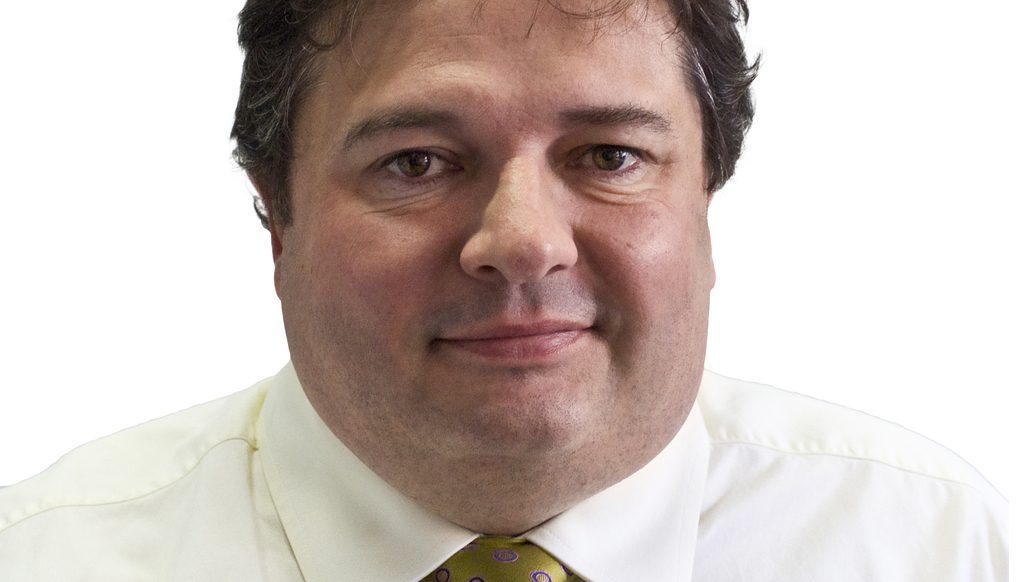 Andrew Hinds, director of F. Hinds
Andrew Hinds, director of F. Hinds
On 23 March we took the decision to close all of our stores, then the same day the government announced the compulsory closure anyway. All of our store teams and the vast majority of our head office staff have been on furlough since then. Members of our payroll and web teams have continued to work and we are starting to increase numbers as we plan for a gradual reopening of stores, hopefully starting in a couple of weeks’ time.
The only silver lining so far is that online sales have been relatively strong, but these are still only a small proportion of our usual overall turnover. The furlough scheme has obviously been a great relief as it has enabled us to reassure our staff that we can all return from this pandemic and rebuild a successful business together. The rates holiday has also helped, leaving the biggest black hole as our rent bill, where some landlords have been very constructive but others so far have been less so.
Our goals for the year ahead start with keeping our customers and staff safe. We then hope to return as close to normal as we can, although we know that footfall is likely to remain challenging for quite a while. We expect to have to respond to changing current events throughout the rest of 2020 and probably beyond.
CLOSING THOUGHTS
John Langford, director of Braybrook and Britten, rounds off things off with his thoughts on Covid-19 and why the industry should remain optimistic for the future.
There’s some old wisdom about people coping better with large crises than small ones. Pragmatism kicks in. You don’t have the luxury of running around second guessing yourself.
So considering that things are bad, Braybrook and Britten are coping surprisingly well and feeling quite calm; the options before us are fewer and hence easier to choose between. Everyone is at least in the same boat, which is oddly reassuring.
Typically when a recession hits, it has an uneven impact and leaves the odd gap you can try and squeeze through. But with coronavirus, the cause is not just financial tightening and the impact is virtually universal.
Workshops are closed. Bullion and raw materials running short. Staff feeling unsafe. Assay and other services locked down. Stock not replenished. Not just a reduction in customers, a sudden cessation. The whole global supply chain frozen.
I know ‘wartime’ analogies are being over-worked, but I’m not even sure a war stops everything this fast.
Like everyone, we went into this hoping for a temporary ‘brakes on/brakes off’ event only to realise it was destined to drag on for many months; followed by a prolonged and deep economic downturn.
I am not necessarily a fan of some of our political leaders, but I was impressed with the speed of financial aid. Rates relief, some grant money and the furlough scheme stopped this becoming an unrecoverable and instant blood bath for a lot of retail. It may only be delaying the inevitable, but for those who can adapt, it has given necessary breathing space.
We were luckier than most with online and catalogue sales being our significant channels. But if anyone thought that the sole casualty would be face to face retail and somehow online and mail order would rush in to fill a vacuum, then they will have had a rude awakening. As the online clothing retailers discovered, nobody buys expensive things just to sit around at home in.
So is this the ‘new normal’ we keep hearing about? Will we emerge to find ourselves in a transformed world? Do I think it will change or kill off traditional jewellery retailing? No I don’t. It appears different because the cause (a plague is so ‘Middle Ages’) seems like something out of a dystopian novel. But measured against other occurrences over a human lifetime, it is just an event and like all events, it will pass.
Humans describe things with hyperbole when we are caught up in them and the media love identifying such moments as epochal tipping points. Then, somehow, things always go back to pretty much how they were before and any changes resume at a normal pace.
Advice? I’m probably not a man to come to for wise counsel, but Corporal Jones was right. Don’t panic. The fear of loss creates a hope that maybe if the company takes a really bold leap, there is safety somewhere. So businesses will risk time and capital urgently migrating like corporate refugees to a strange place they don’t really understand and are not equipped to thrive in.
The only reliable trick to beating a recession is to deal with the pain and still be around when it ends.
Some 15 years ago I was a director in a large PLC that decided that in order to escape from a minor recession, their profitable traditional business had to make a dramatic transformation to a new technology-based delivery model. They bungled it and collapsed within three years. The attempted cure killed them. Or rather, impatience to avoid rather than manage a problem did.
A version of normal will return. Probably far sooner than we expect.

